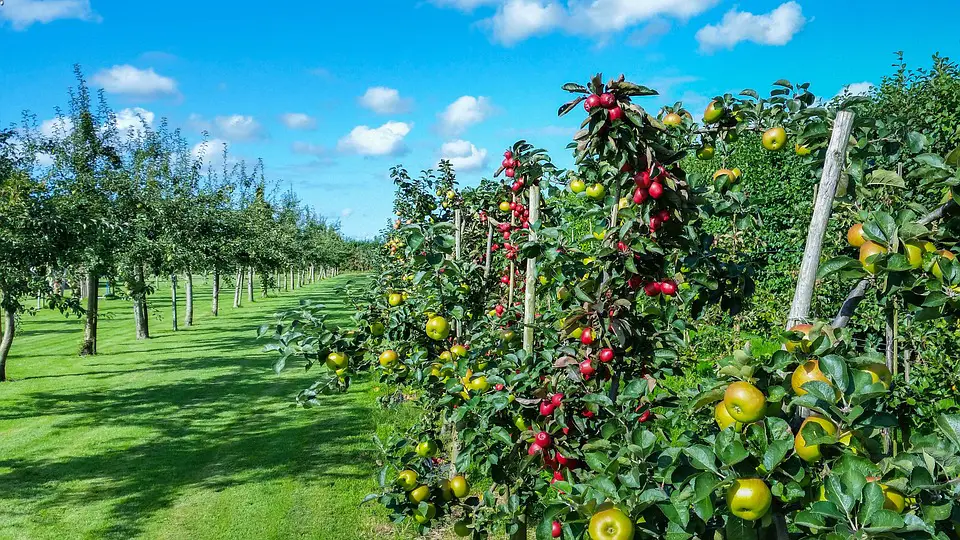Introduction
Living in a concrete jungle can often disconnect us from nature, leaving us longing for a touch of green. However, transforming your apartment into a lush green oasis is easier than you might think. Gardening is a powerful solution that not only enhances the aesthetics of your living space but also brings numerous health benefits. In this article, we will explore how you can turn your apartment into a botanical haven.
Benefits of Gardening
Gardening offers a myriad of benefits that go beyond mere aesthetics. It allows you to create a serene environment, reduces stress, improves air quality, and promotes overall well-being. Incorporating plants into your living space can boost your mood, enhance productivity, and provide you with a sense of purpose. Furthermore, taking care of plants fosters a sense of responsibility and teaches patience and perseverance.
Choosing the Right Plants
When it comes to gardening in apartments, it is crucial to select plants that thrive well in limited space and low light conditions. Consider plants such as snake plants, pothos, ferns, and succulents as they are low-maintenance and perfect for apartment living. If you have ample sunlight, herbs like basil, mint, and rosemary can flourish on your windowsill and provide you with fresh ingredients for cooking.
Vertical Gardening
Maximizing the use of vertical space is especially important in apartments. Vertical gardening allows you to utilize walls, railings, and hanging baskets to grow a variety of plants. Climbing plants like ivy or trailing plants like pothos can add a stunning visual element to your apartment while saving valuable floor space. Additionally, consider installing vertical wall planters or creating a living wall filled with vibrant greenery.
Indoor Plant Care Tips
To ensure the health and longevity of your indoor plants, proper care is essential. Remember to water your plants regularly but avoid overwatering, as it can lead to root rot. Each plant has its specific light and moisture requirements, so it’s crucial to research and understand the needs of your plants. Fertilizing, pruning, and periodically cleaning leaves from dust are also essential to maintain healthy growth.
Enhancing Ambiance with Plant Décor
Add flair to your apartment by incorporating creative plant décor. Hanging planters, terrariums, and decorative pots can elevate the visual appeal of your living space. Create a cozy reading corner with a hanging chair surrounded by lush foliage or introduce a cascading waterfall of indoor plants near a window for a tranquil atmosphere. Let your imagination run wild and design an oasis that reflects your personal style.
Gardening Tools and Supplies
To kick-start your apartment gardening journey, you’ll need some essential tools and supplies. Invest in a set of lightweight gardening tools such as a trowel, pruners, and a small spade for convenience in tight spaces. Additionally, gather potting soil, planters of various sizes, and organic fertilizers to provide the best growing conditions for your plants.
FAQs
Can I grow vegetables in my apartment?
Yes! Many vegetables like cherry tomatoes, peppers, and herbs can be successfully grown indoors. Ensure they receive sufficient light and water according to their specific requirements.
How can I deal with limited natural light?
If your apartment lacks natural light, you can invest in grow lights that mimic sunlight. These lights provide the necessary spectrum for plant growth, allowing you to cultivate a thriving indoor garden.
What if I have a small balcony?
Even with a small balcony, you can make the most of your space by utilizing railing planters, vertical hanging systems, or creating a mini container garden. Choose compact plants or utilize vertical gardening techniques to maximize the available space.
What are some low-maintenance plant options?
If you have a busy lifestyle or lack a green thumb, low-maintenance plants like ZZ plants, spider plants, or succulents are excellent choices. They require minimal care and can tolerate occasional neglect.
How can I prevent pests in my indoor garden?
To prevent pests, regularly inspect your plants for any signs of infestation. Avoid overwatering and provide adequate air circulation. If necessary, use organic insecticidal soap or introduce natural predator insects to keep pests at bay.




